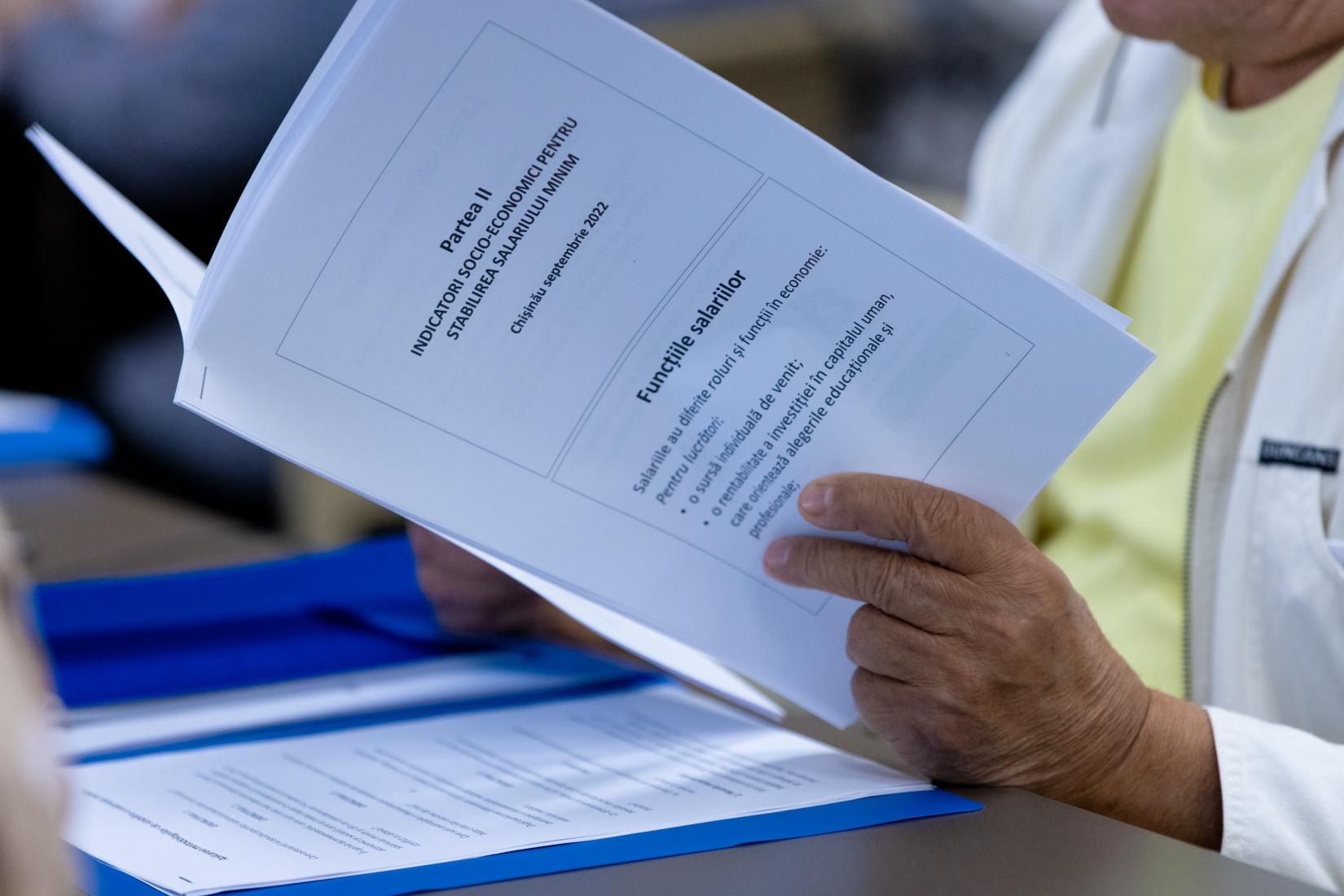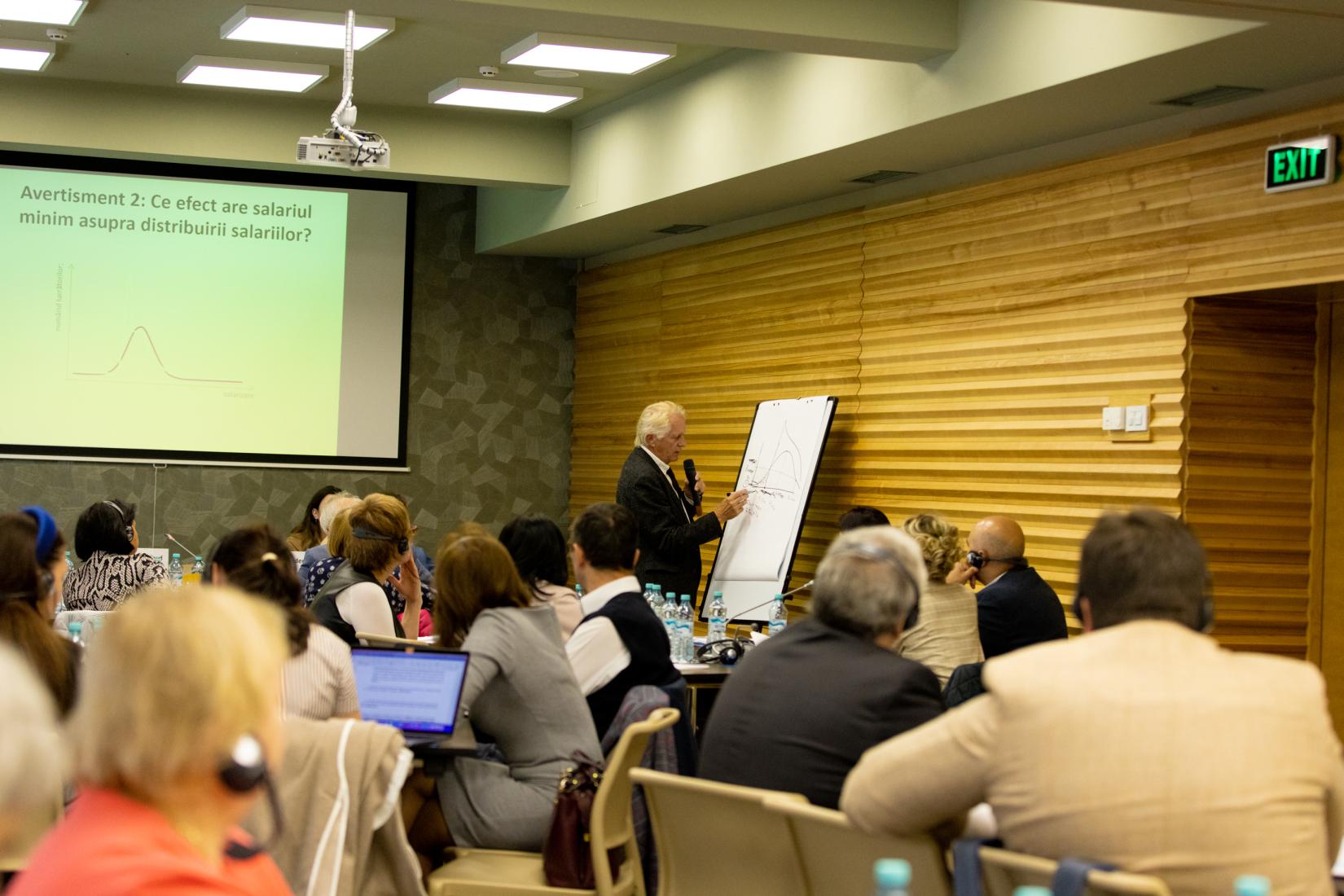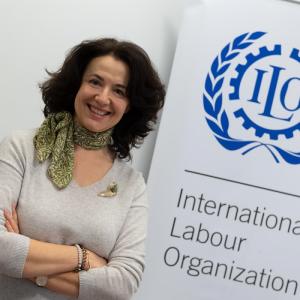The minimum wage. Better efficiency for the protection of vulnerable workers.
01 December 2022
- The Republic of Moldova is facing multiple crises. Altogether, the post-pandemic effects of COVID-19, the energy crisis and the war in the neighboring country Ukraine, have an extraordinary and lasting economic impact on the country and its citizens.

Crises affect each and every one of us, vulnerable groups feeling it the most, especially groups with low incomes that encounter difficulties in coping with the sudden increase in the cost of living. In 2022, the inflation rate in Moldova experienced an increase of almost 35% and substantially affected real wages.
The increased risk of poverty, erosion of incomes and deterioration of the quality of life remain eminent. The poorest quintile (quintile I, 20% of the poorest households) in villages and cities spends around 70% of their income on food, housing and utilities, including gas and electricity. According to the estimations done, the energy crisis may deepen poverty for two-thirds of the population. 54% of poor people in Moldova are women. Households headed by women will be the most affected.
Salary is the most important source of income for most of the households. In the context of crises, the minimum wage policy is back on the government agenda. Not only as a wage policy tool in general, but as an element of social protection for the most vulnerable employees. According to International Labor Organization (ILO) research, in Moldova every fifth worker in the private sector receives a salary equivalent to the minimum wage or one close to it. A third of these employees work in the informal economy (33% compared to 14% in the formal economy); for six out of ten employees in the informal economy, the employer does not comply with the minimum wage legislation. The most exposed to the effects of non-compliance are women, low-skilled workers, paid workers in rural areas from small enterprises and in the agricultural sector. For many of them the minimum wage is one of the few sources of existence. A proper salary can guarantee these workers a decent life and reduce in-work poverty.

In 2022, the government adopted new regulations regarding the unification of the minimum wage in the economy and increased its amount up to 3500 lei. ILO recommended the unification of the minimum wage in Moldova as early as 2017 in order to restore its social and economic function. The unification in 2022 allows to restore the equity in the system, previously disrupted by the presence of two minimum wages, in the private and public sectors, with a lower net minimum wage in the public sector. But the reform process must continue to rule out inconsistencies that still exist. The government and the social partners requested technical assistance from ILO to overcome them. The expertise provided by ILO is based on international norms and good practices in the region, evaluated from the perspective of the provisions of the ILO Convention no. 131/1970 regarding the setting of minimum wages ratified by the Republic of Moldova in 2000.
ILO support includes several components, among which (i) the development of an empirical analysis based on data on the effects of the minimum wage in Moldova (ii) the development and validation of a new mechanism for establishing and periodically updating the amount of the minimum wage through social dialogue (iii) ) strengthening the capacities of key actors from ministries, companies, trade unions and employers’ associations to apply correctly the methodologies for establishing the minimum wage and (iv) strengthening the capacities for negotiation and promotion of the minimum wage at branch level.
On December 1, 2022 a report on the mechanism for establishing the minimum wage was consulted with the members of the National Commission for Consultations and Collective Negotiations (NCCCN). It proposes a series of recommendations that, once applied, will restore the social and protective role of the minimum wage, establish equity in the system, reduce the wage discrepancy between men and women, allow the adjustment of the wage level to the wage needs of these families and will take economic factors into account.
The study proposes a new procedure for participative establishment of the minimum wage and for strengthening the technical capacities of the NCCCN for its application. The document analyzes the impact of the national minimum wage on public sector pay scales and suggests the introduction of a national minimum wage that is not connected to the general wages in the public sector. It also proposes a framework support for the development of sectoral salary scales aligned to the qualifications in the sector. The study emphasizes the importance of the social dialogue, collective bargaining and the negotiation capacities of social partners in the process of salary adjustments.
During the consultation of the study Mrs. Corina Ajder, Secretary of State for Labor and Social Protection mentioned among other things that "...the recommendations of the study resonate with the government's aspiration to restore equity in the wage system, including the minimum wage, for a better impact on the quality of life of low-wage workers as well as on their income from work".
******
Support for minimum wage adjustment provided by the International Labor Organization is carried out within the framework of ILO, UNDP and FAO Moldova joint project financed by the UN Fund for Sustainable Development and coordinated by the Office of the UN Resident Coordinator in Moldova. The project includes technical assistance for policy makers in crisis management, recovery and resilience, food security and income access for the most vulnerable.





